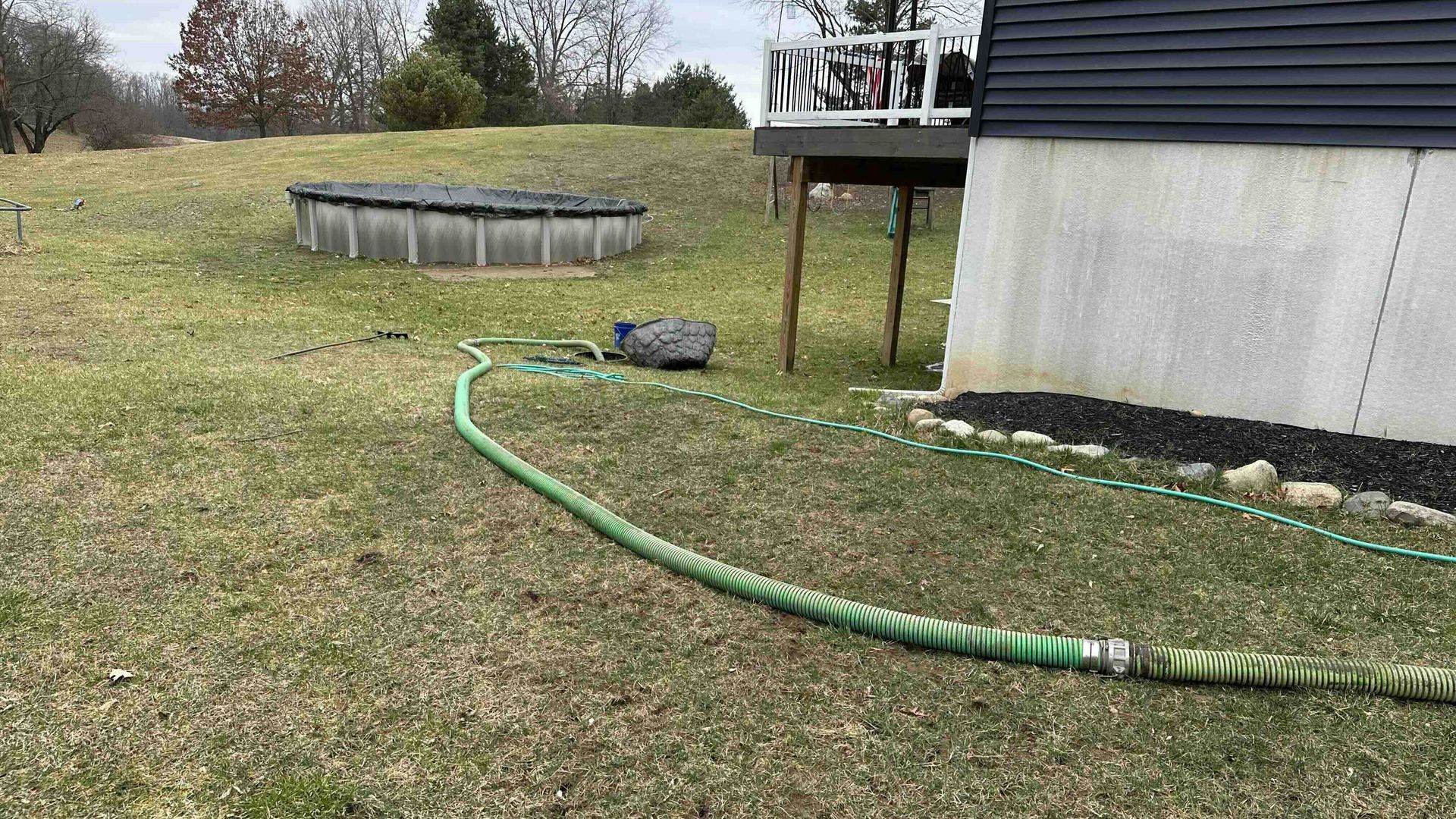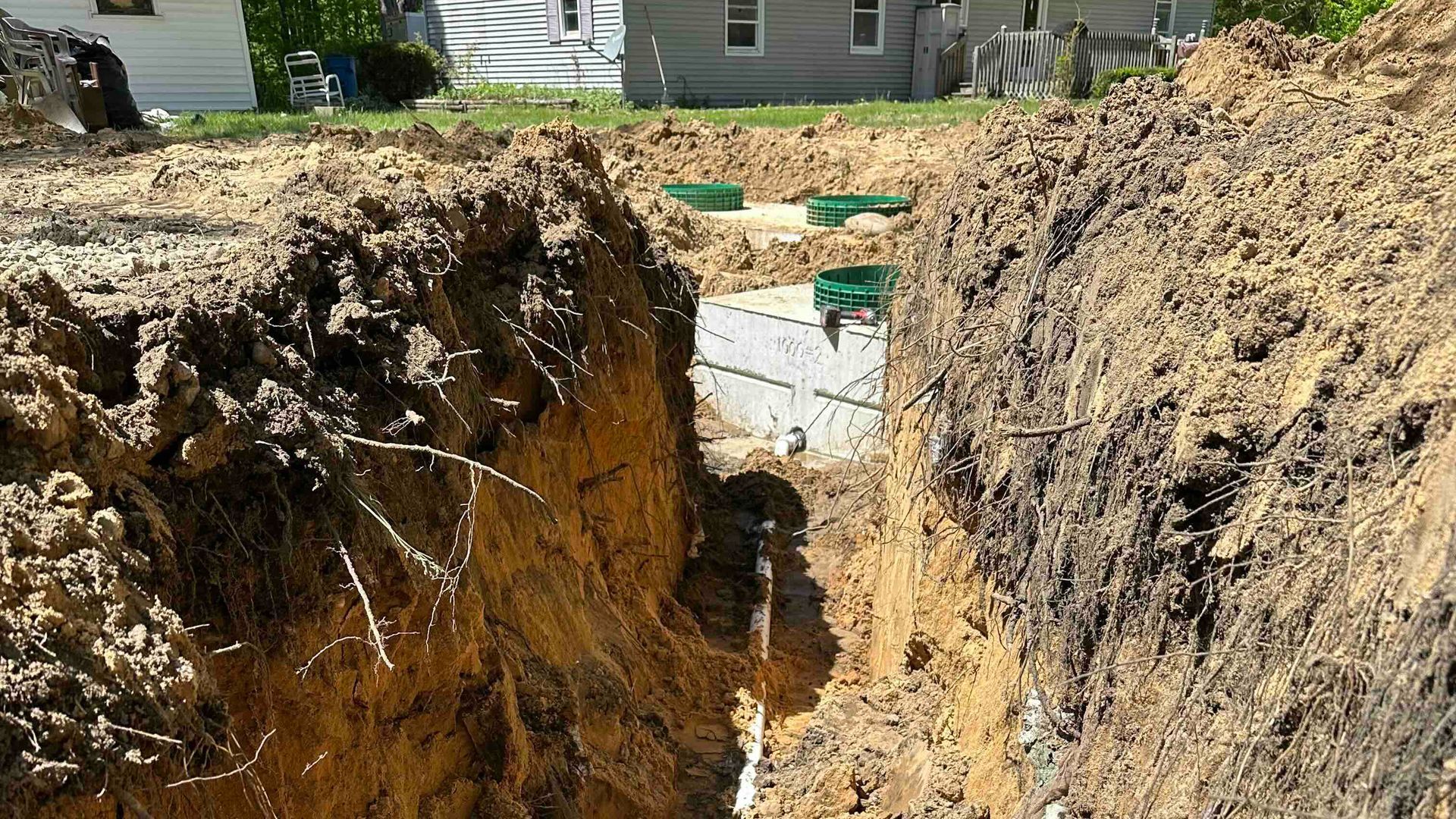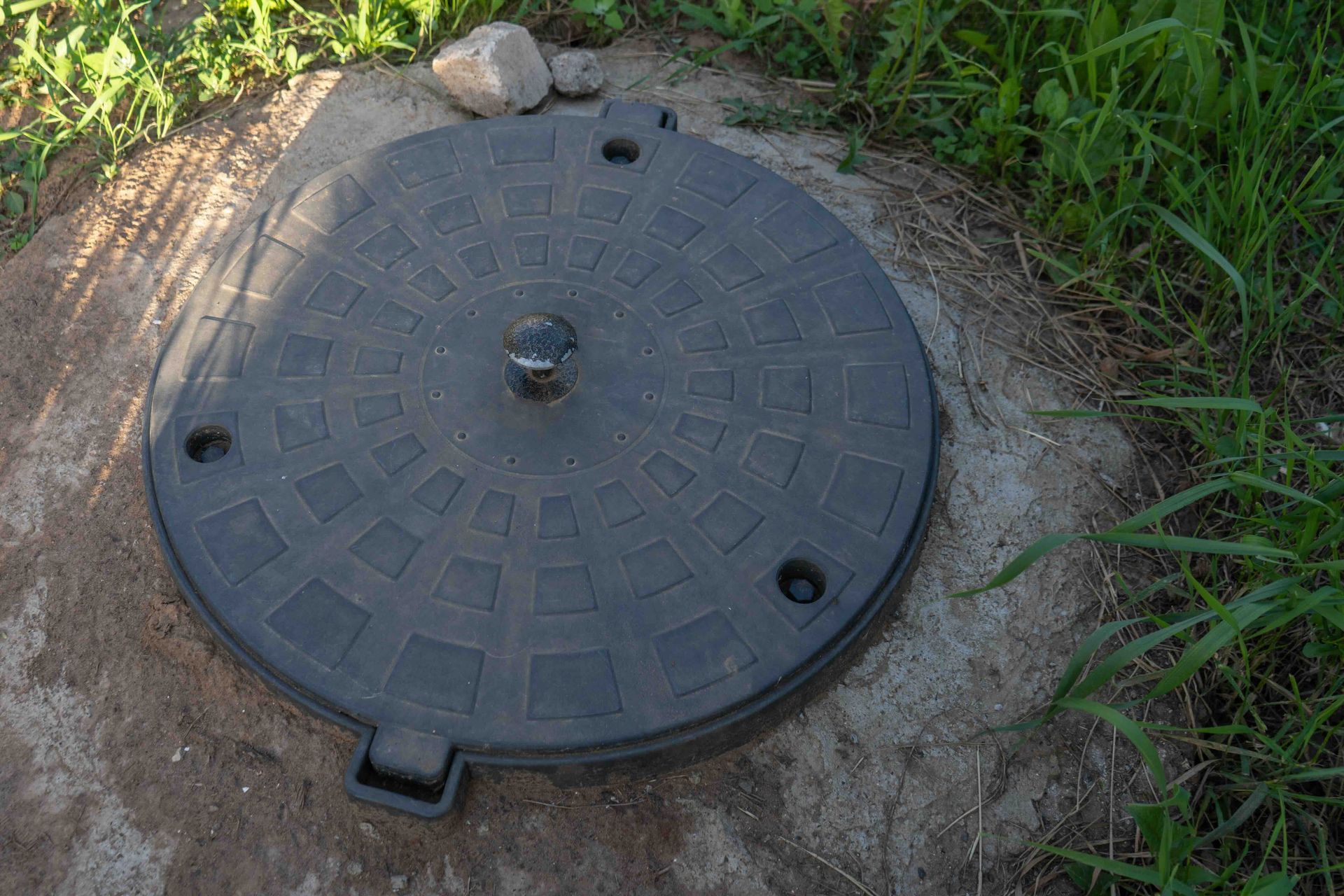Caution! Warning Signs That Your Septic Tank Needs Pumping
Unlike fixing a clogged sink, where the problem is obvious, figuring out if your septic tank needs to be pumped can require more detective work. The whole system is buried underground, so how do you know when to call the professionals? Thankfully, some clues can help you determine if your septic system is starting to struggle and is in need of attention.
When you grapple with signs that your septic system might need attention, don't hesitate to contact a seasoned professional who can guide you through the decision-making process. At AdeptSeptic Services, we pride ourselves on repairing septic tanks and offering a comprehensive range of services, including expert evaluations, excavation, and seamless installations for residential properties.
One of the first questions homeowners often have is whether a repair will suffice or if it's time to consider a complete septic tank replacement. Our team of knowledgeable professionals is here to provide you with a thorough assessment, considering various factors such as the current state of your septic tank, soil conditions, and overall system capacity. We believe in empowering you with the information needed to make an informed decision that aligns with your needs and budget.
Should a replacement arise, you can trust AdeptSeptic Services to handle the entire process efficiently and carefully. We've got you covered, from precise excavation work that minimizes disruption to your property to installing a fresh, top-of-the-line septic tank. Our friendly and skilled team ensures a smooth transition, and the new septic tank seamlessly integrates with your residential property.
Overdue Pumping
Timely maintenance of residential septic tanks is paramount for preventing plumbing issues and ensuring the proper functioning of the overall septic system. As per guidelines provided by the Environmental Protection Agency (EPA), it is recommended to schedule septic tank pumping every three to five years. This routine maintenance is crucial to prevent the tank from reaching its total capacity, a scenario that frequently leads to various plumbing complications.
The frequency of septic tank pumping can be influenced by factors such as the size of your household and the capacity of the tank itself. Larger households or smaller tanks may necessitate more frequent pumping to prevent the accumulation of waste and avoid potential system failures. To determine the ideal pumping schedule tailored to your specific circumstances, it is advisable to consult with a septic system specialist.
Engaging the services of a professional allows for a comprehensive inspection of the septic tank, assessing its current condition, and evaluating the accumulation of sludge and scum. Based on this assessment, the specialist can provide personalized recommendations on how often your septic tank should be pumped to maintain optimal functionality.
Prompt action is imperative if it has been more than five years since your last septic tank was pumped. Scheduling this service immediately is essential to prevent any issues arising from an overfilled tank. Neglecting overdue pumping can lead to septic system malfunctions, sewage backups, and costly repairs.
Slow Drains
The expeditious drainage of water from sinks and bathtubs is what you can expect from household sinks and floor drains. However, if you observe sluggish emptying when using these fixtures, it could signify a potential concern with your septic tank. While it's important to acknowledge that tardy drains may not exclusively point to a septic tank problem, as obstructed pipelines could also be a culprit, persistent sluggish drainage warrants attention.
In instances where a routine plumbing inspection reveals no discernible issues within the household plumbing network and the application of plungers or unclogging chemicals fails to rectify the situation, it becomes imperative to seek the expertise of a septic tank specialist. These professionals are well-versed in diagnosing and addressing septic system malfunctions, ensuring the seamless operation of the entire sewage infrastructure.
A septic tank specialist employs a systematic approach to identify the root cause of the slow drainage issue. Through a comprehensive inspection, they scrutinize the septic tank's condition, assessing the levels of sludge and scum that might be hindering proper drainage. This meticulous examination lets them differentiate between ordinary pipe blockages and potential septic tank complications.
If a septic tank problem is identified, prompt intervention is crucial to prevent further deterioration. Ignoring signs of a full septic tank can lead to more severe issues, such as sewage backups and system failures. By addressing the problem promptly, homeowners can mitigate potential damages and ensure the sustained efficiency of their septic infrastructure.

Standing Water
A telltale sign that your septic tank is reaching its total capacity is standing water near the drain field. When gray water overflows onto the surrounding areas, creating puddles, it signals that your septic tank struggles to accommodate the volume of waste generated in your home. This issue can arise due to either a full tank or a potential blockage, necessitating immediate action in the form of scheduled pumping or cleaning services.
Overgrown Lawn Grass: Unveiling Sewage Leaks
The impact of sewage water on plant growth becomes evident when waste overflows from the septic tank, seeping into the ground around it. The nutrients in sewage water serve as a fertile ground for grass growth, leading to the emergence of tall patches of grass in areas affected by sewage leaks. Observing this phenomenon can indirectly indicate septic tank issues, urging homeowners to address the underlying problems promptly.
Another Unpleasant Sign of a Full Septic Tank: Strange Smells
The olfactory senses can offer valuable insights into the state of your septic system. As a septic tank accumulates all the household wastes from drains and toilets, including gray water from laundry, showers, and the kitchen, a full or nearly full tank becomes increasingly apparent through odors. Proximity to the septic tank intensifies the unpleasant smells, and the odor may also permeate around drains. Detecting the scent of raw sewage could further indicate a potential leak in the septic tank, underscoring the urgency of addressing the situation promptly.
Do You Hear Gurgling Pipes?
An audible harbinger of potential septic tank issues manifests as gurgling sounds emanating from your pipes. While gurgling pipes could be attributed to various plumbing concerns, they become a distinctive alarm bell signaling the need for septic tank pumping when coupled with other observed signs discussed in this discourse.
The resonance of gurgling pipes becomes particularly pronounced when flushing toilets or allowing water to flow down drains. It serves as an acoustic cue that the septic tank is reaching its capacity and struggling to accommodate the influx of household waste. The confluence of gurgling pipes with other indicators demands immediate attention to avert potential plumbing disasters.
Addressing gurgling pipes requires a holistic approach, considering the broader context of septic system health. While isolated incidents may be attributed to minor plumbing issues, persistent gurgling, especially when accompanied by standing water, overgrown lawn grass, and unpleasant odors, necessitates proactive measures such as scheduled septic tank pumping.
The Unwanted Sewage Backup
A sewage backup is the unequivocal manifestation of a septic tank at its total capacity. When the septic tank becomes overwhelmed and can no longer accommodate the influx of waste, the inevitable outcome is a retrograde sewage flow through your drains. Beyond the immediate inconvenience of a messy house, sewage backups pose a more profound threat to property and health.
This distressing scenario necessitates extensive cleanup efforts and subjects inhabitants to the pungent and potentially harmful odors associated with raw sewage. A sewage backup is unequivocally a worst-case scenario, constituting a septic system emergency that demands immediate intervention. The gravity of this situation underscores the importance of recognizing and addressing the earlier signs of a full septic tank before it culminates in such catastrophic events.
In the lead-up to a sewage backup, subtle indicators often present themselves, offering a window of opportunity to rectify the impending issue. The observant homeowner, attuned to signs such as gurgling pipes, overgrown lawn grass, standing water, and unpleasant odors, can take preemptive measures to avoid the distressing consequences of a sewage backup. Ignoring these warnings could lead to an unfortunate escalation of the problem, with potentially severe repercussions for the property and its occupants' well-being.
Preventive Measures for Septic Health
Recognizing the significance of these signs prompts a call to action for homeowners to embrace preventive measures and proactive maintenance of their septic systems. While seemingly innocuous, gurgling pipes act as an auditory beacon, signaling the need for attention. Engaging in prompt and targeted solutions becomes imperative when this auditory cue converges with visual indicators like standing water, overgrown lawn grass, and unpleasant odors.
Scheduled septic tank pumping is a fundamental aspect of septic system maintenance, offering a proactive approach to prevent the escalation of issues. By adhering to recommended pumping intervals and seeking professional guidance when signs of distress emerge, homeowners can safeguard the integrity of their septic systems and avoid the complications associated with sewage backups.
When homeowners detect the subtle but unmistakable indicators that their septic system requires attention, opting for the services of AdeptSeptic becomes a prudent and practical choice. The first advantage lies in the wealth of experience that the company brings to the table. With a seasoned team of professionals, AdeptSeptic has honed its expertise over years of addressing diverse septic system needs. This depth of knowledge ensures that customers receive a service and a comprehensive solution tailored to their unique requirements.
AdeptSeptic Services prioritizes timely intervention, recognizing a well-maintained septic system's critical role in a household's functionality.
When customers notice signs such as slow drainage, unpleasant odors, or gurgling sounds, reaching out to AdeptSeptic ensures a prompt and friendly response today!
You might also like
REQUEST A SERVICE
We will get back to you as soon as possible
Please try again later
Quick & Reliable
We are available 24/7 via phone or email
Navigation
Services
WORKING HOURS
- Mon - Fri
- -
- Saturday
- Appointment Only
- Sunday
- Closed
24 Hour Emergency Service:
888-800-1472
Navigation
Services
WORKING HOURS
- Mon - Fri
- -
- Saturday
- Appointment Only
- Sunday
- Closed
24 Hour Emergency Service:
888-800-1472
Navigation
Services
WORKING HOURS
- Mon - Fri
- -
- Saturday
- Appointment Only
- Sunday
- Closed
24 Hour Emergency Service:
888-800-1472
SERVIng west michigan and surrounding areas
Battle Creek, Byron Center, Caledonia, Grand Ledge, Grand Rapids, Middleville, Nashville, Plainwell, and Wayland
All Rights Reserved | AdeptSeptic Services
Website by SPECK DESIGNS
All Rights Reserved | AdeptSeptic Services
Website by SPECK DESIGNS






